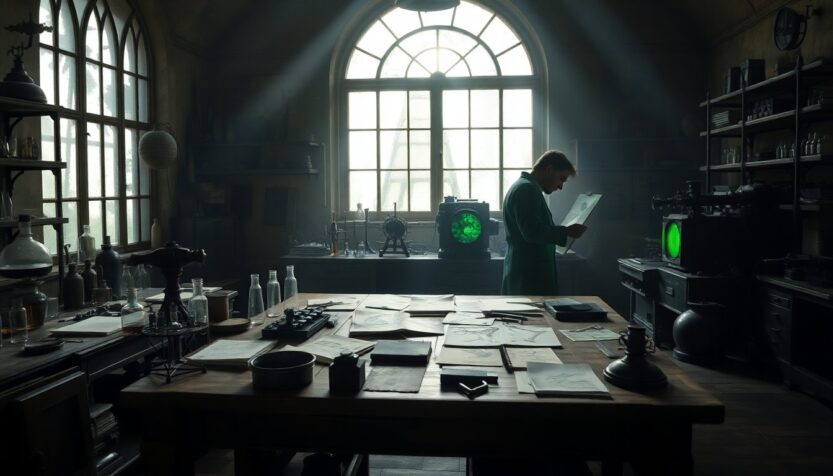The cinematic world of Frankenstein has undergone various interpretations, yet Guillermo del Toro’s latest rendition offers a surprising twist to this well-known narrative. Fans acquainted with classic portrayals of the creature, including the 1931 Universal monster film and the comedic adaptation in Young Frankenstein, may find themselves astonished by the film’s conclusion. Featuring acclaimed actors Oscar Isaac, Jacob Elordi, and Mia Goth, del Toro’s adaptation presents a fresh perspective on the iconic tale.
Set against an icy backdrop, the story reaches its climax as Dr. Victor Frankenstein is relentlessly pursued by the being he animated. Trapped aboard a ship within a frozen landscape, he recounts his harrowing tale to a sea captain, all while anticipating the return of the creature seeking vengeance. Through flashbacks, viewers are guided on a journey revealing the tragic chase that has led both Victor and his creation to this moment of confrontation.
Unraveling the creature’s fate
In a surprising turn of events, the creature, often depicted as a harbinger of chaos and destruction, emerges as a more complex character. After boarding the ship where Victor recuperates, the creature seeks reconciliation with both Victor and the captain. This moment of peace is pivotal, showcasing a side of the creature rarely explored in earlier adaptations. Rather than embodying the monster of legend, he demonstrates a capacity for empathy and understanding.
A final act of redemption
In a powerful display of his superhuman strength, the creature performs a noble act by freeing the ship from its icy prison, allowing the captain and his crew to return home. This act serves as a poignant contrast to the creature’s typically grim portrayal, transforming him into a tragic hero rather than a villain. Once this task is completed, he walks away into the vast, frozen expanse, leaving behind a bittersweet yet hopeful impression.
This ending aligns closely with Mary Shelley’s original novel, Frankenstein; or, The Modern Prometheus. In Shelley’s narrative, the creature also departs into the icy abyss, accepting his fate with somber resignation. He speaks of embracing his own funeral pyre, suggesting an awareness of his impending end. However, del Toro imbues the creature with supernatural healing abilities, implying a future filled with potential rather than an inevitable demise.
The tragic arc of Victor Frankenstein
As the narrative unfolds, Victor Frankenstein’s journey culminates in his demise aboard the ship. Despite his physical decline, he finds a moment of closure with the creature. This reconciliation allows Victor to acknowledge his failures as a creator and as a father figure, recognizing the creature as his son. It highlights the tragic duality of Victor’s character—his ambition leads him to usurp the role of creator, yet he remains unprepared for the responsibilities that accompany such power.
The weight of guilt
Throughout del Toro’s adaptation, both Victor and the creature carry the heavy burden of guilt. Their tragic fates intertwine, resulting in numerous deaths around them, often causing them to question the morality of their actions. Although not every death can be directly attributed to their choices, the shadow of their shared legacy looms large. One particularly harrowing example is the fate of Elizabeth, starkly illustrating the consequences of Victor’s ambition.
As the film approaches its conclusion, viewers are presented with a thought-provoking message. The screen flashes a quote from Lord Byron’s Childe Harold’s Pilgrimage, a poetic work sharing thematic elements with Shelley’s narrative. Byron, a contemporary of Mary Shelley, played a pivotal role in the genesis of the Frankenstein tale during a summer where literary friends were challenged to craft ghost stories. This historical connection not only links the two works but also highlights the influence of Byronic heroes, characterized by their brooding complexity, on Victor’s character.
By weaving this quote into the film’s narrative, del Toro pays homage to Shelley’s literary inspirations while enriching his adaptation’s narrative tapestry. Ultimately, the ending of del Toro’s Frankenstein invites audiences to reflect on the nature of creation, responsibility, and the haunting specters of guilt that follow those who dare to play God.






